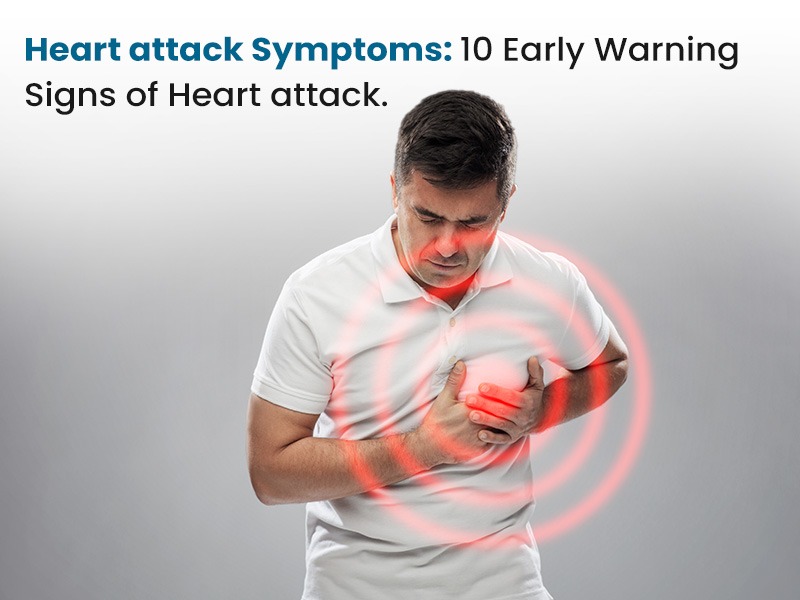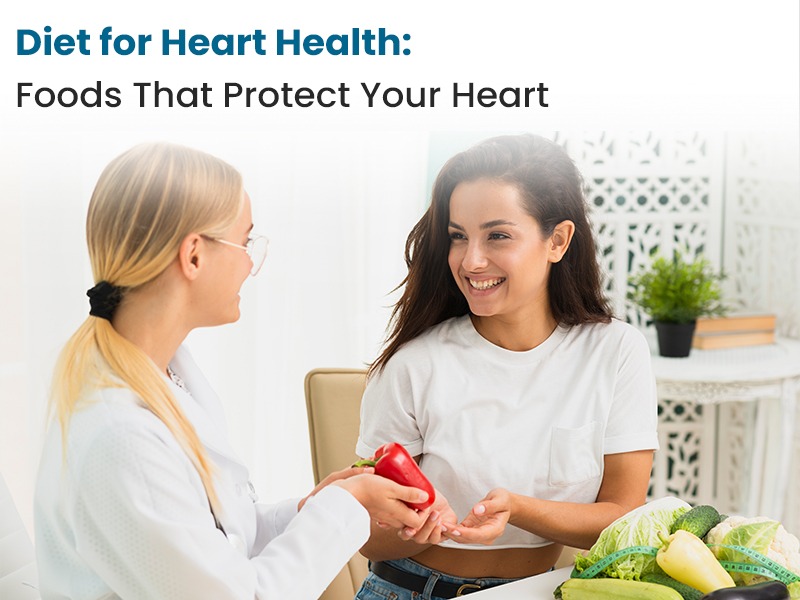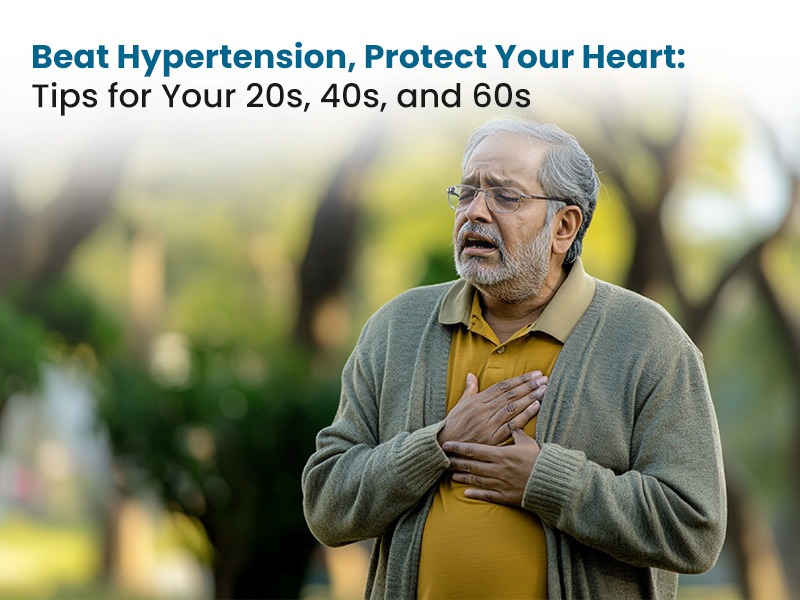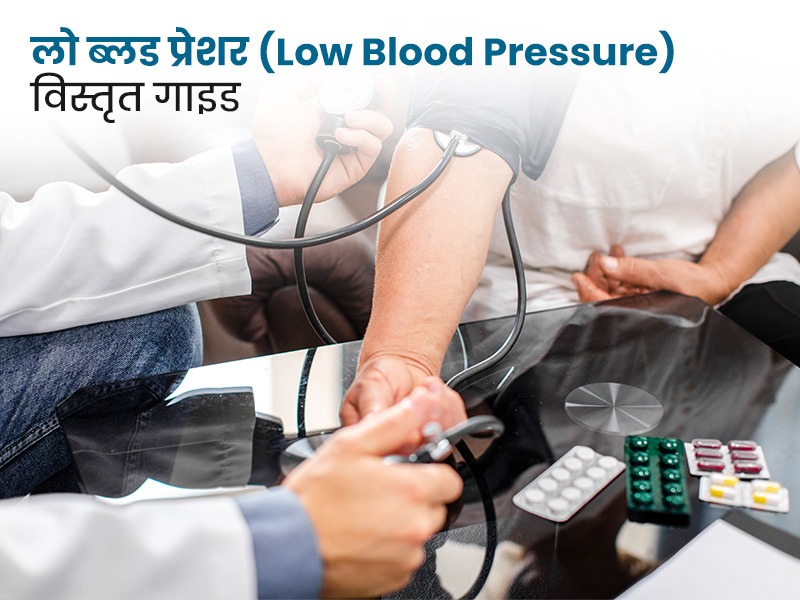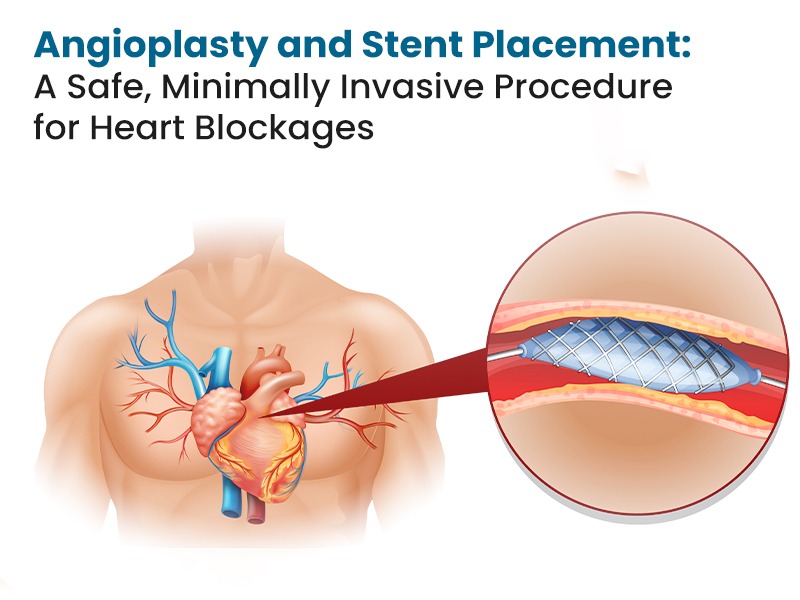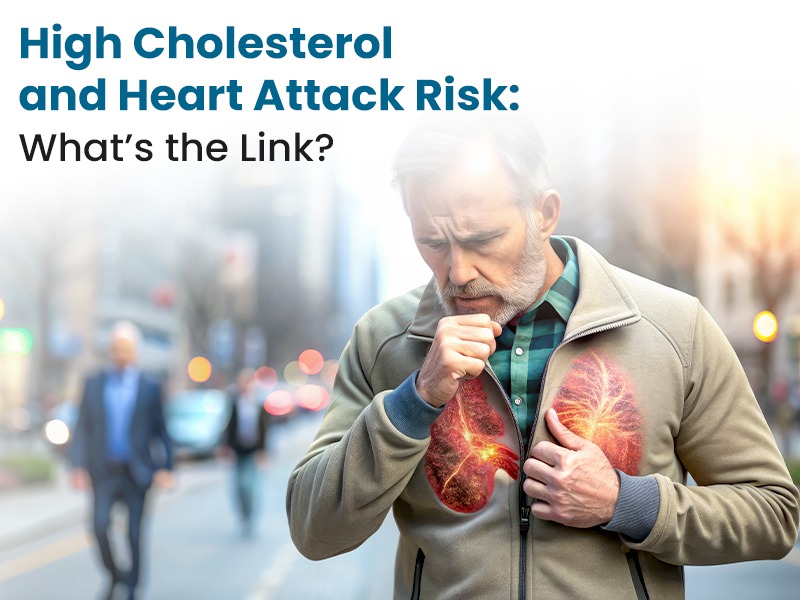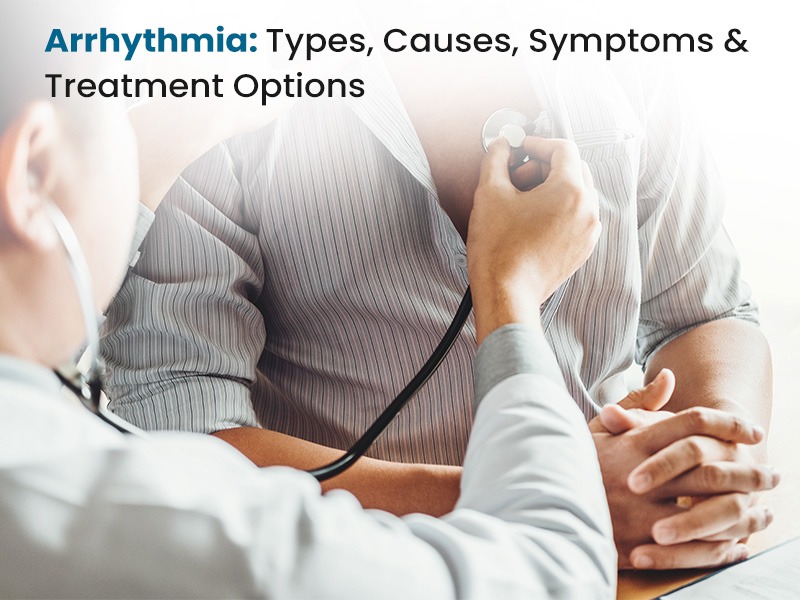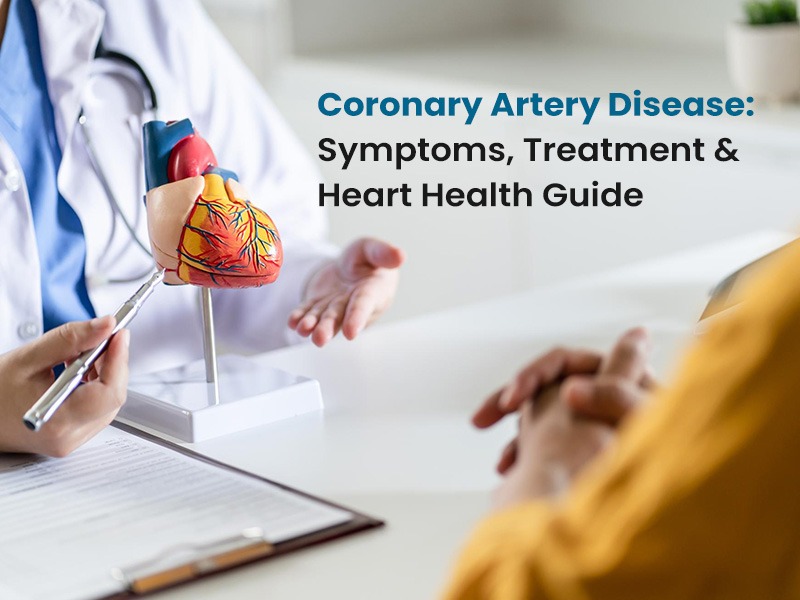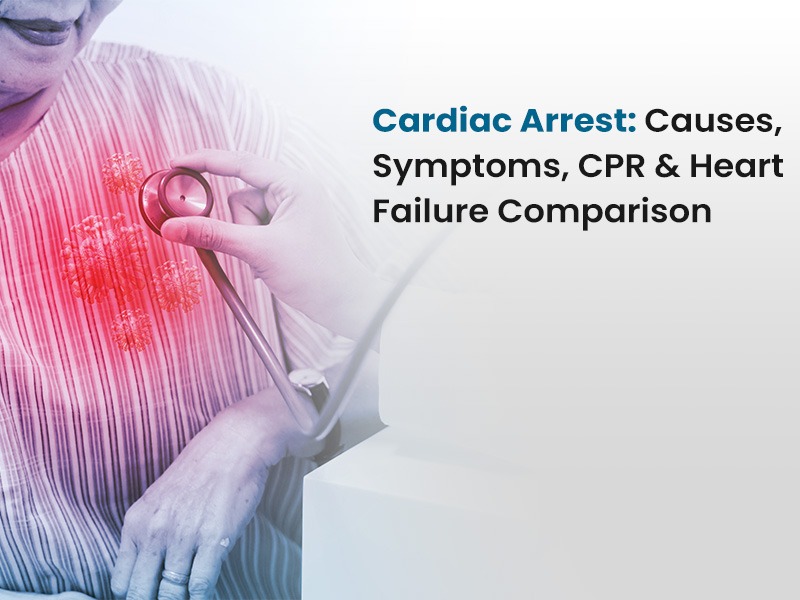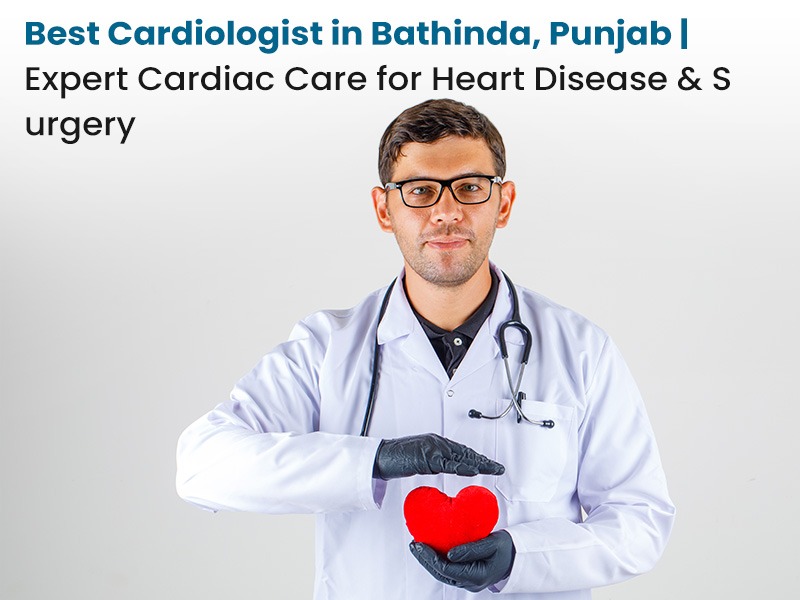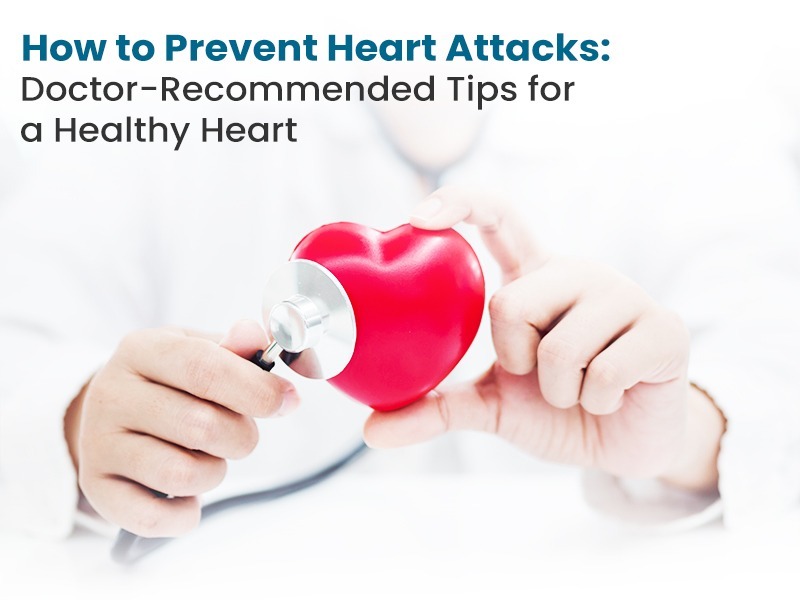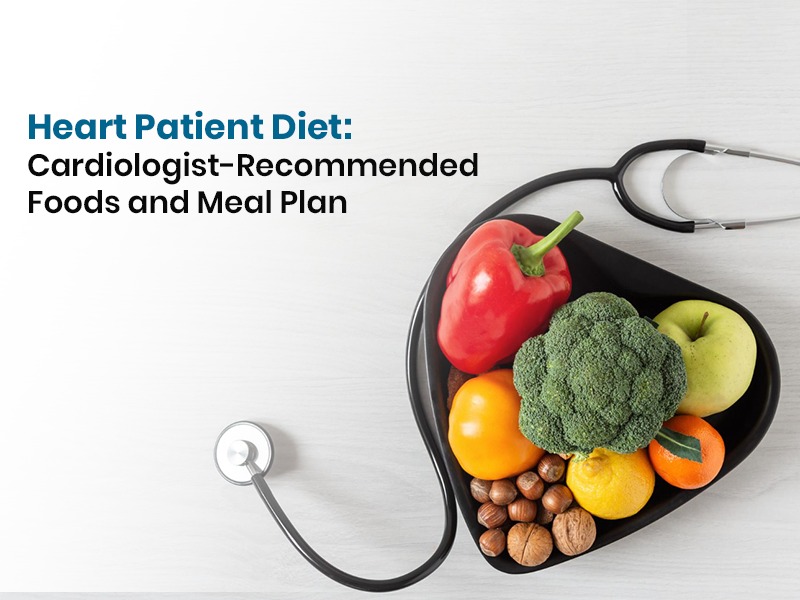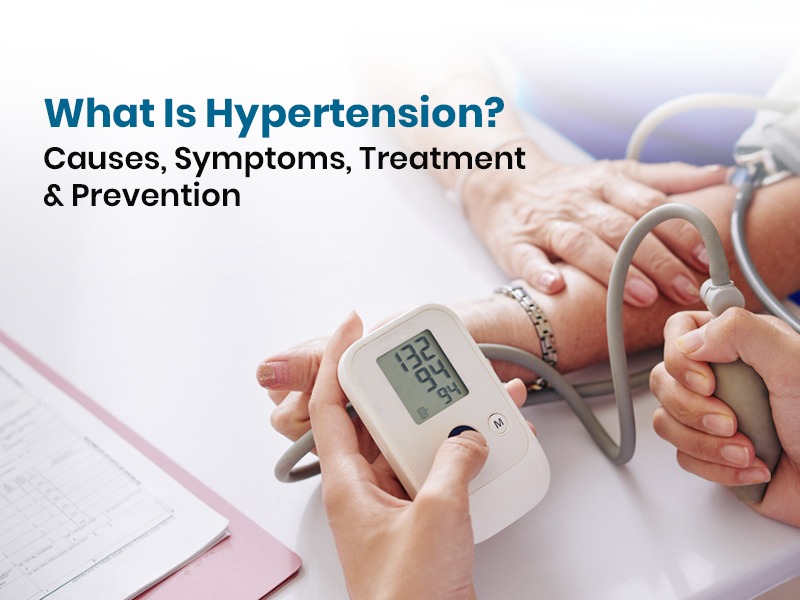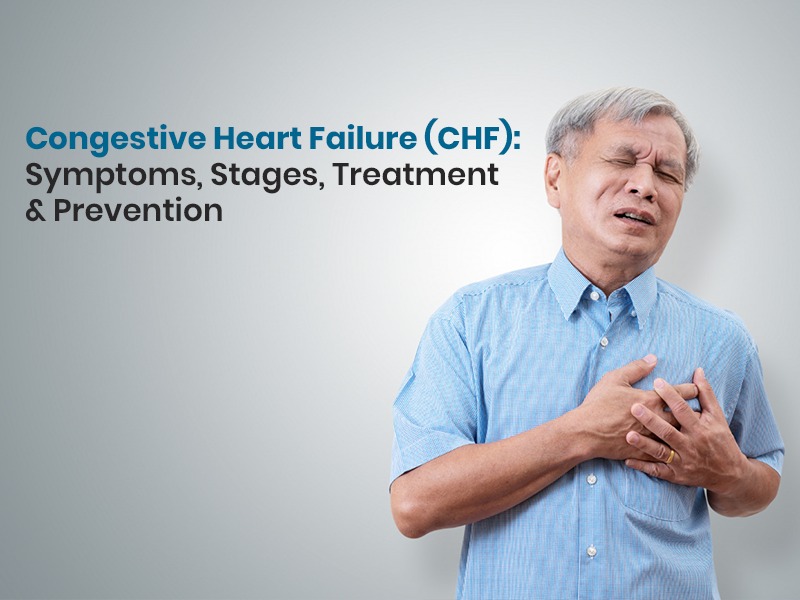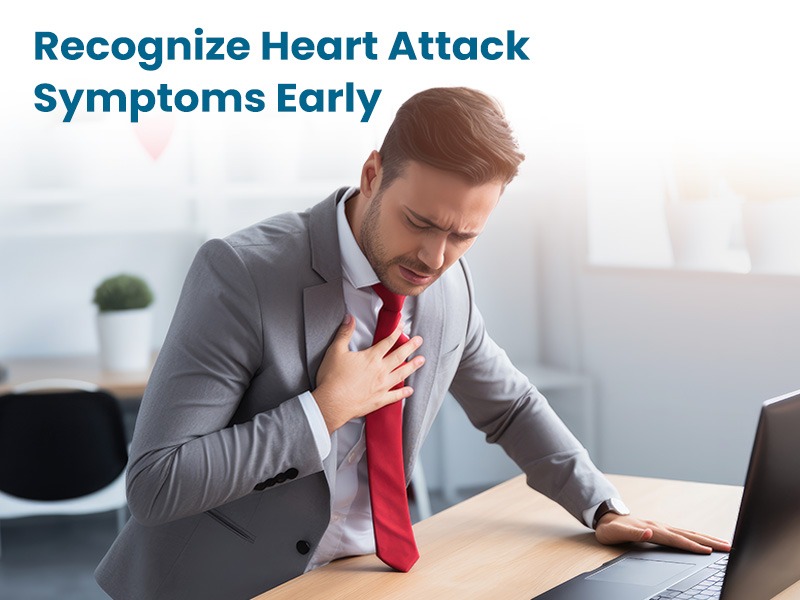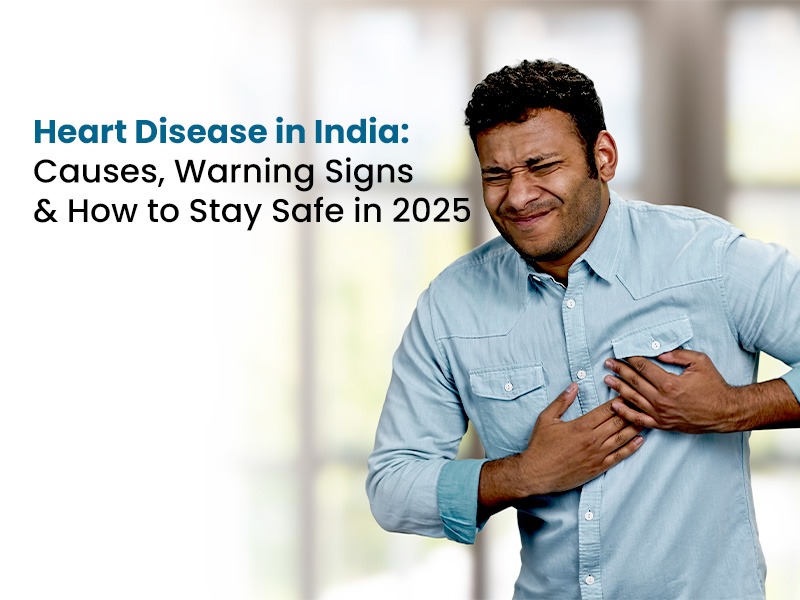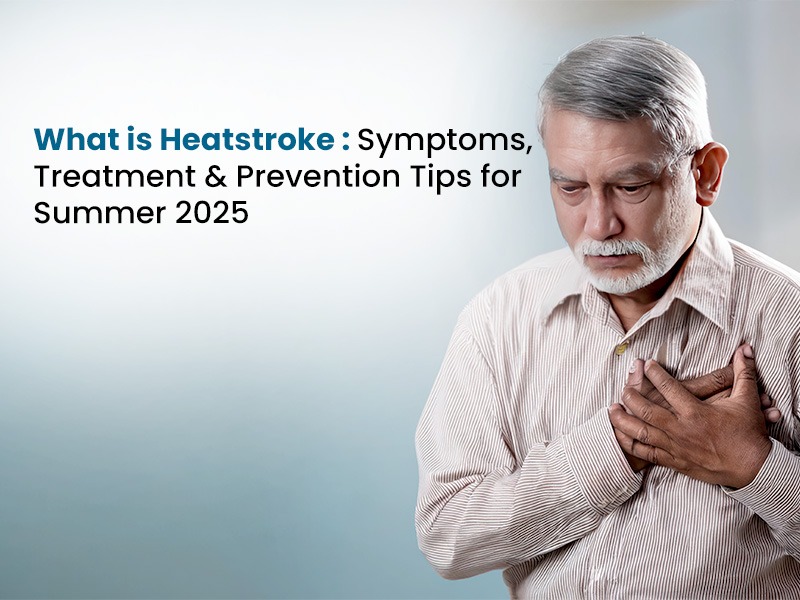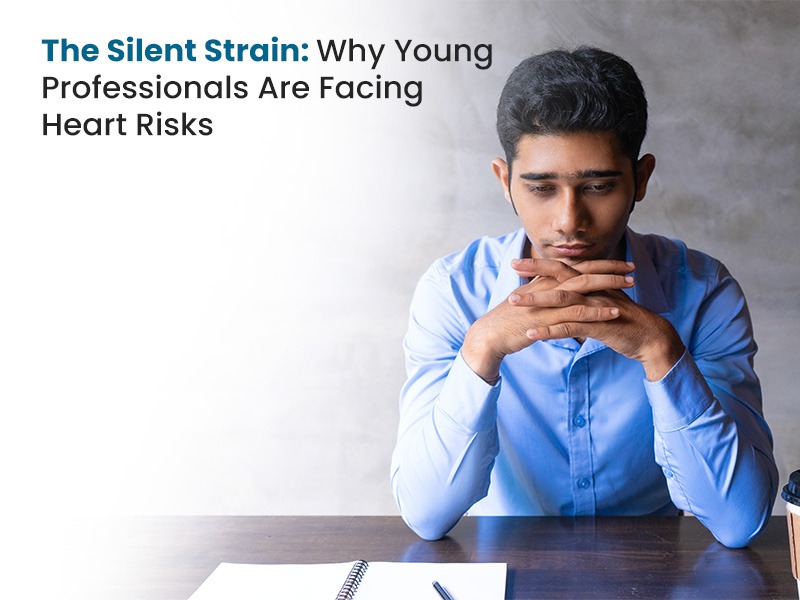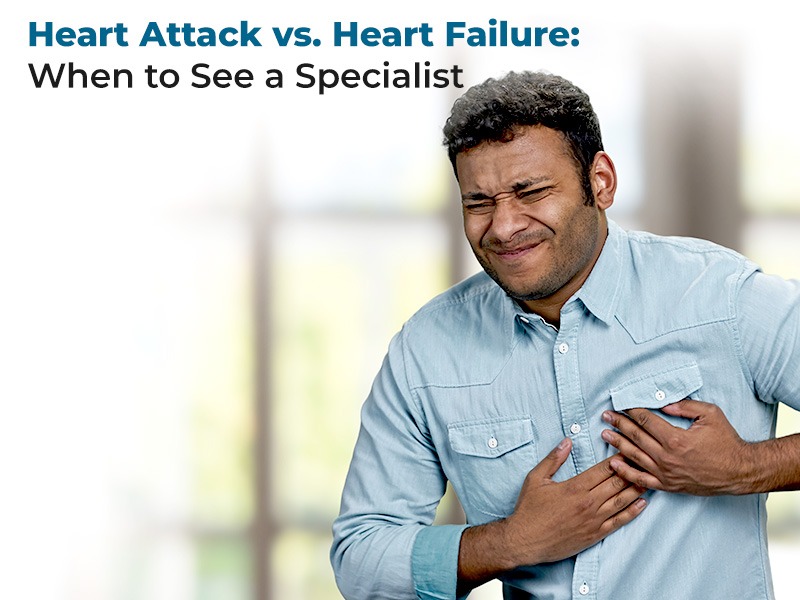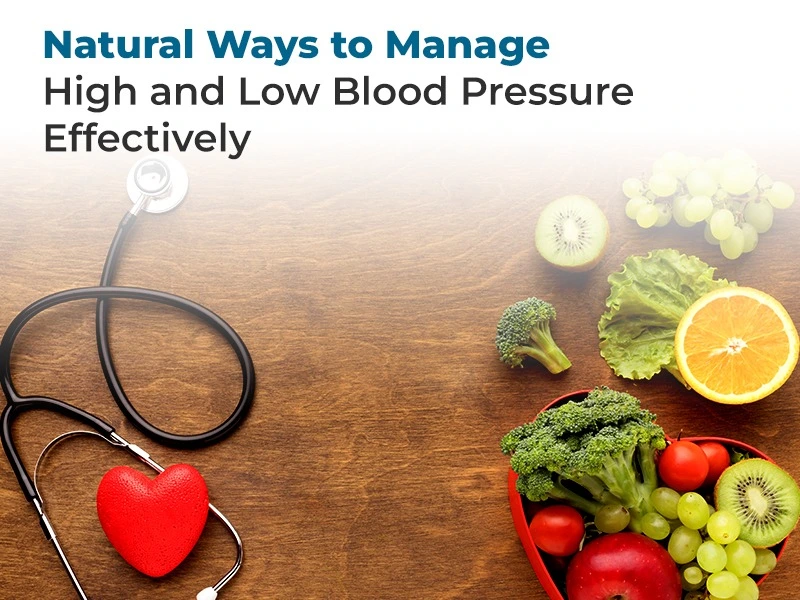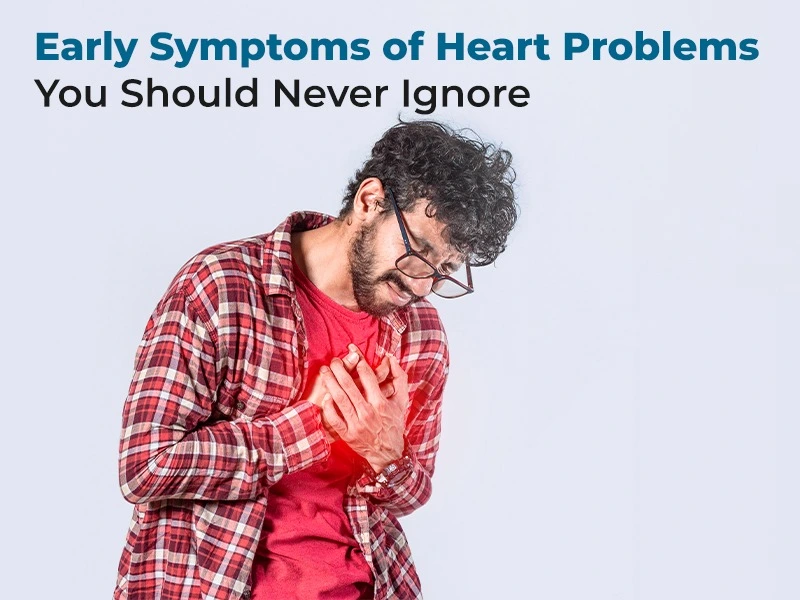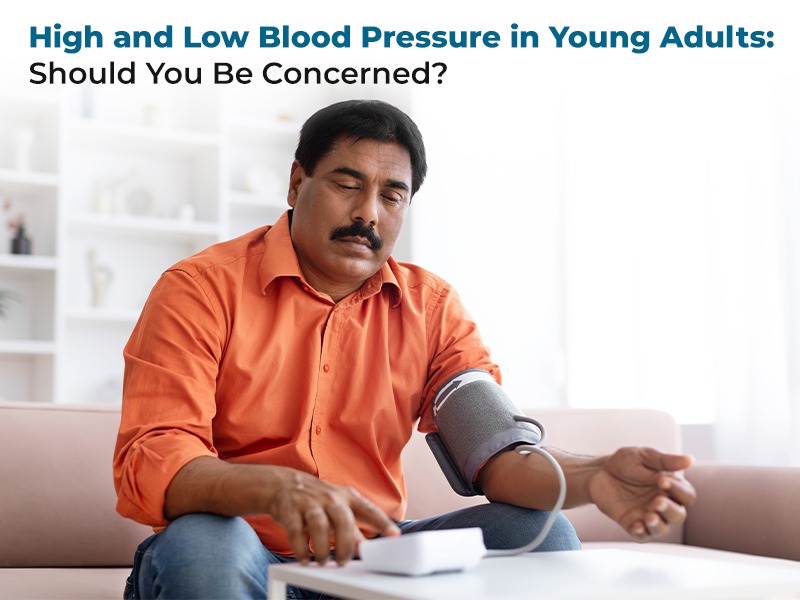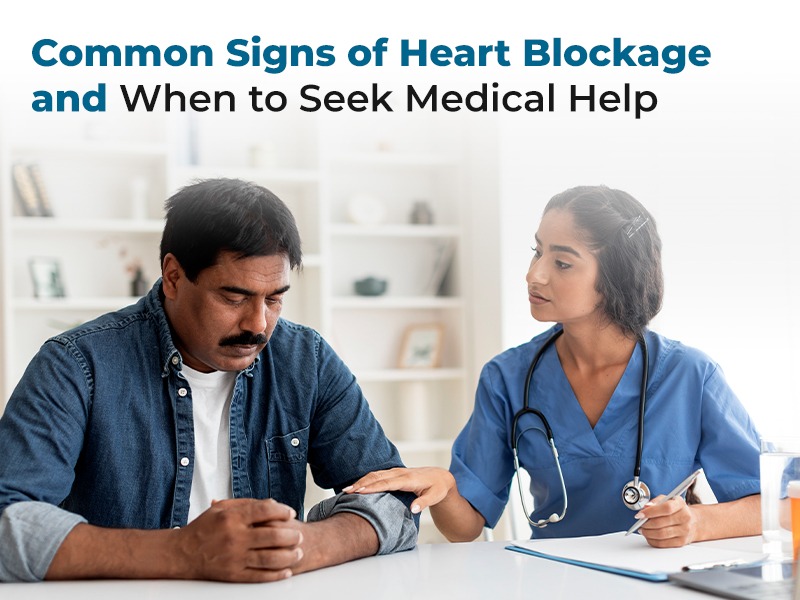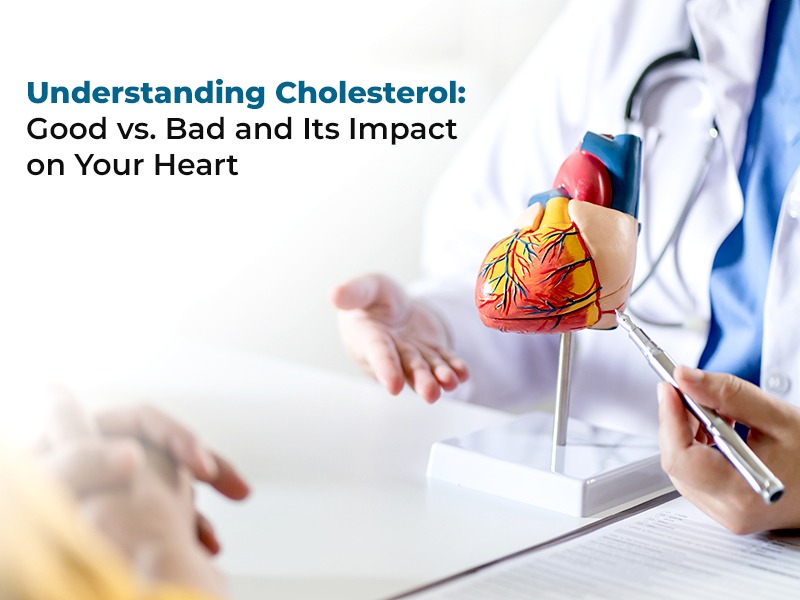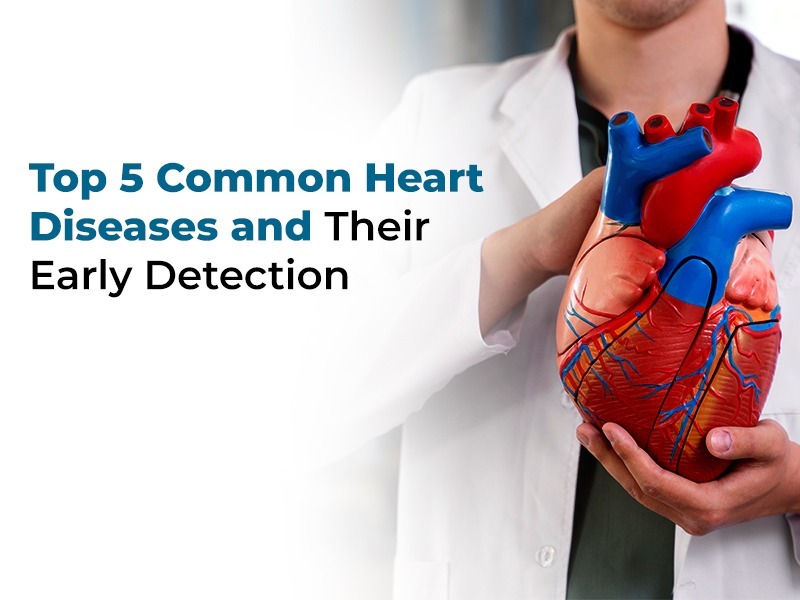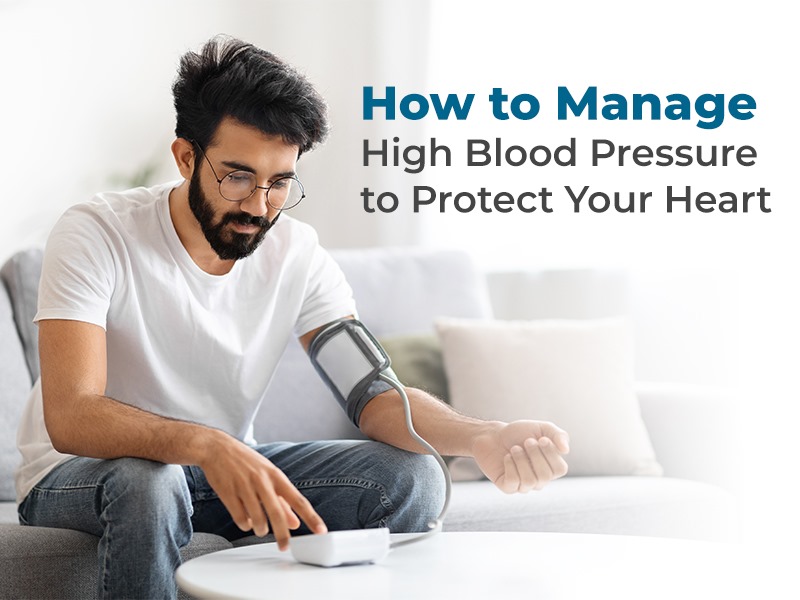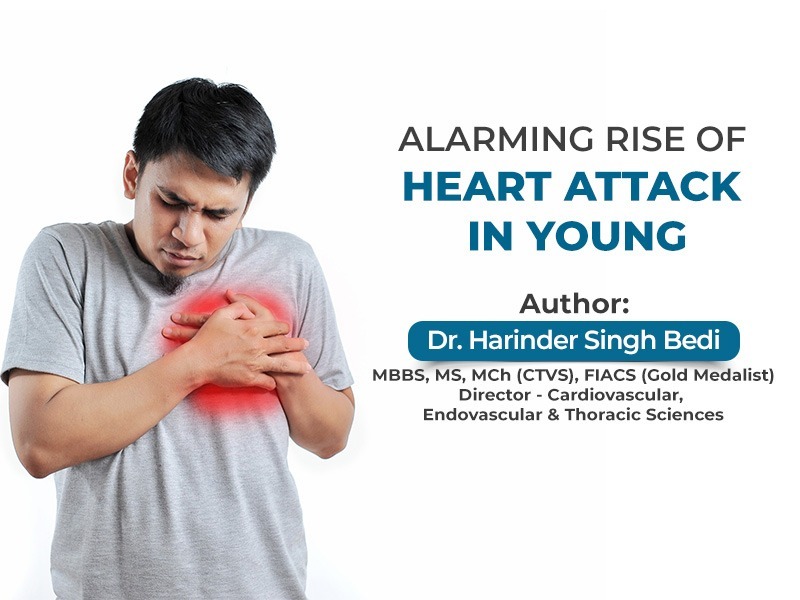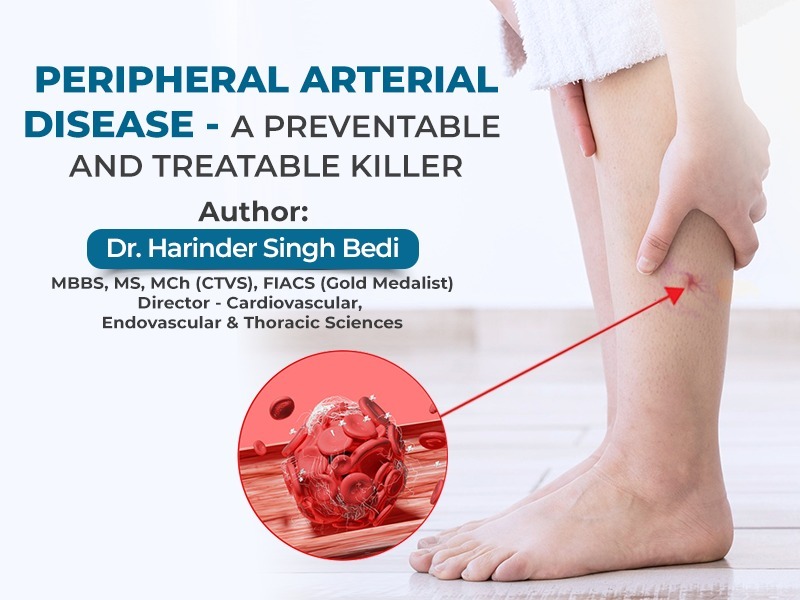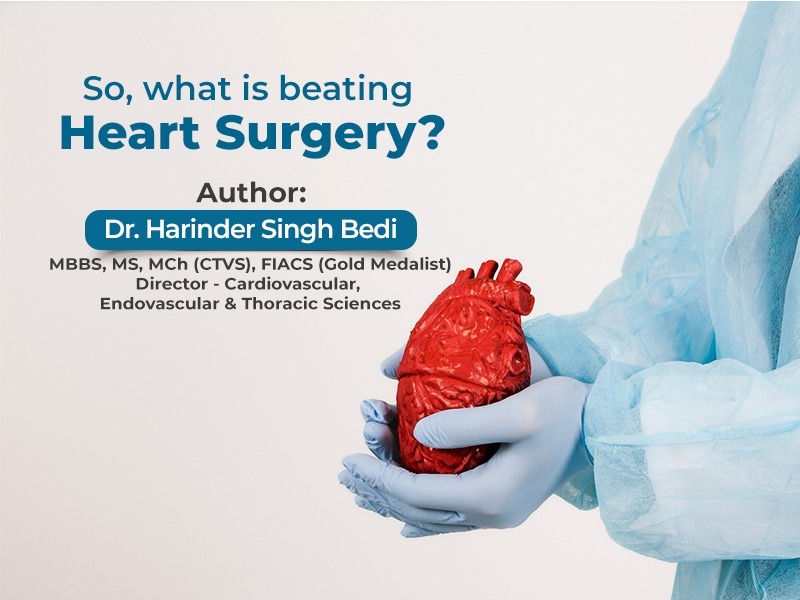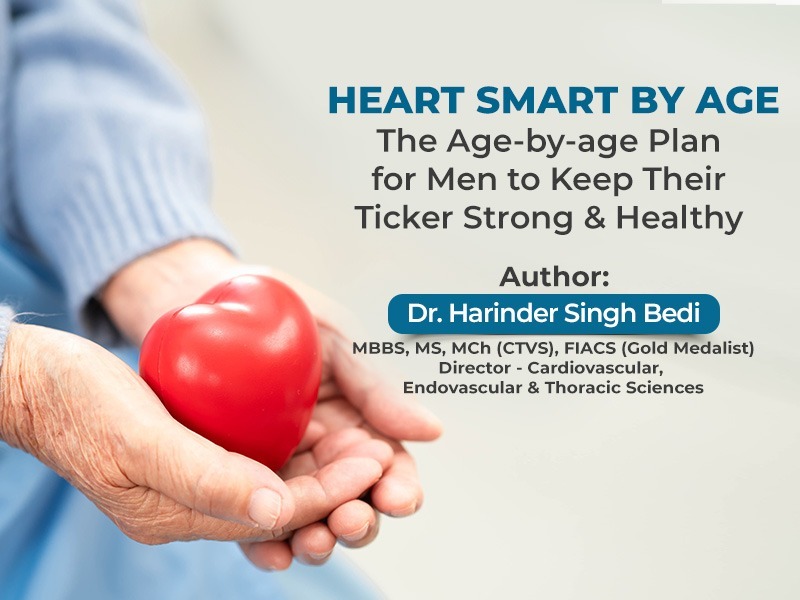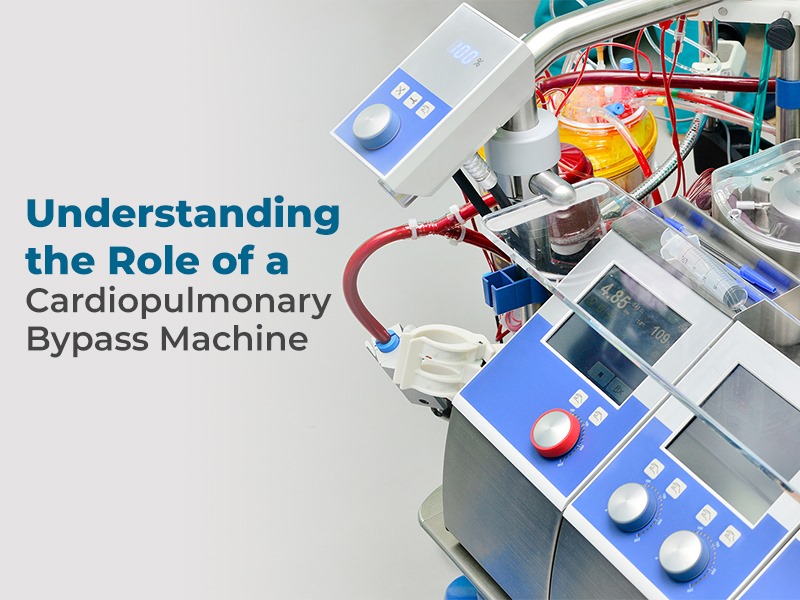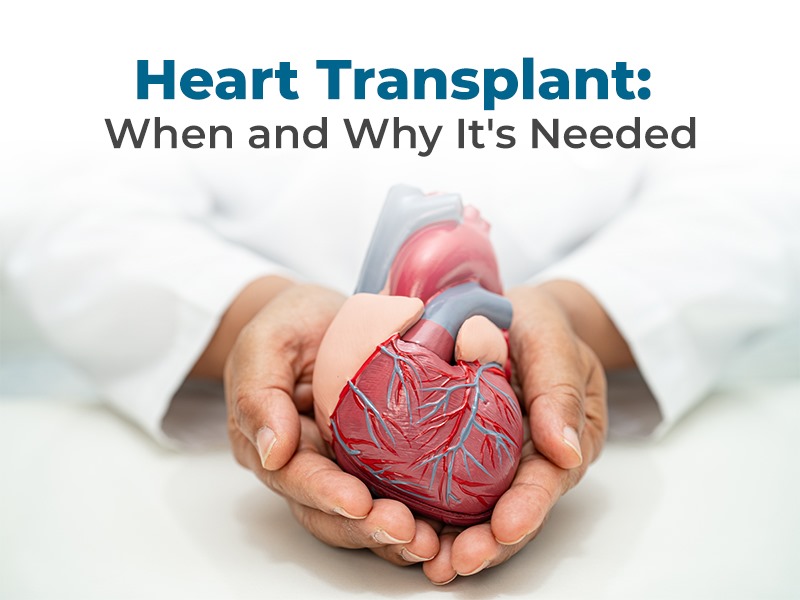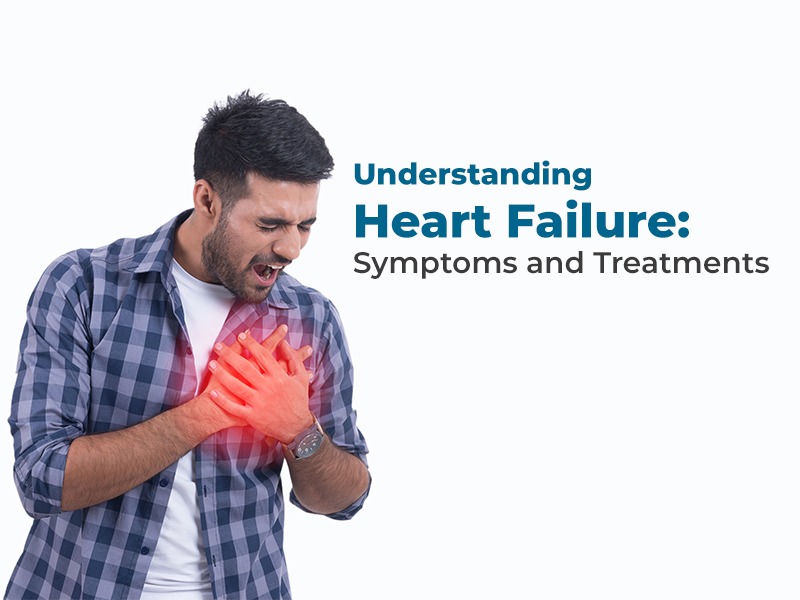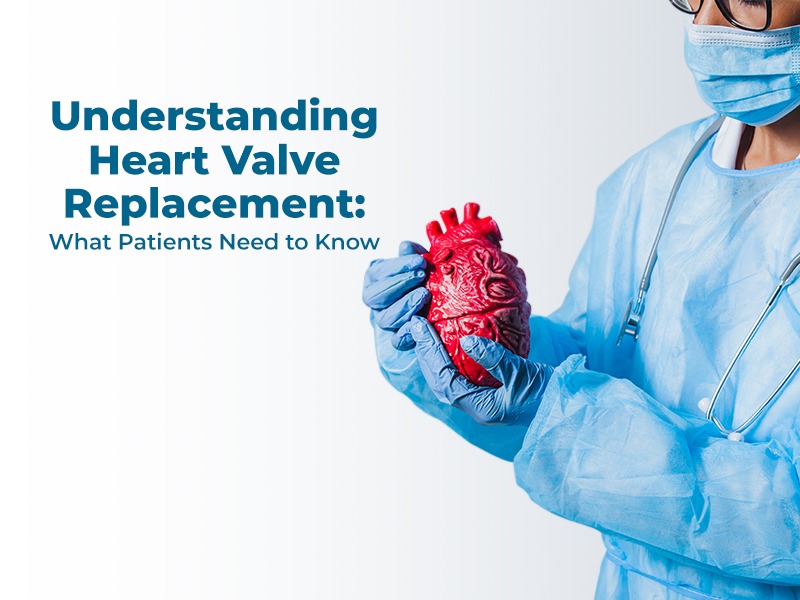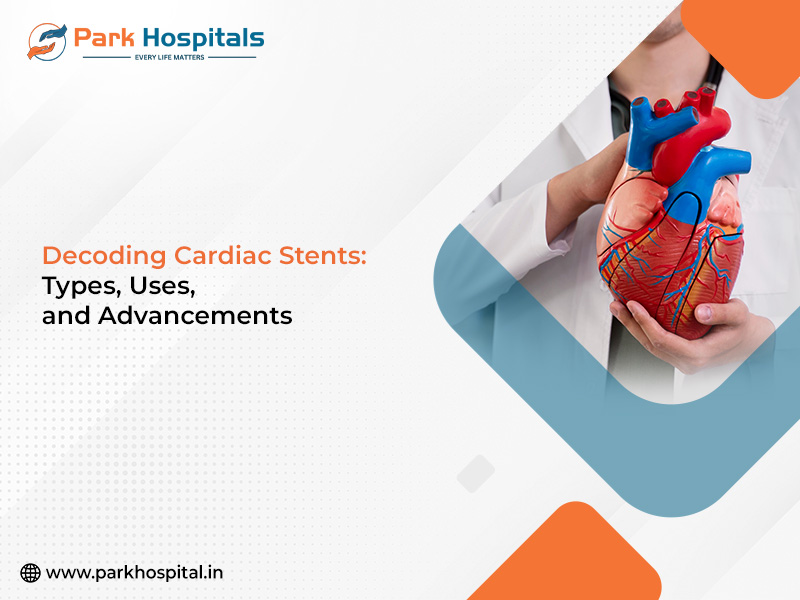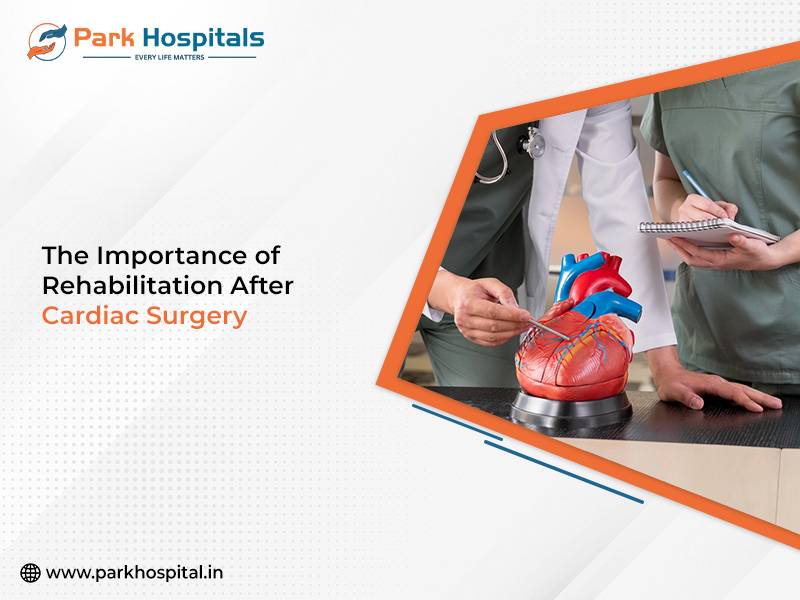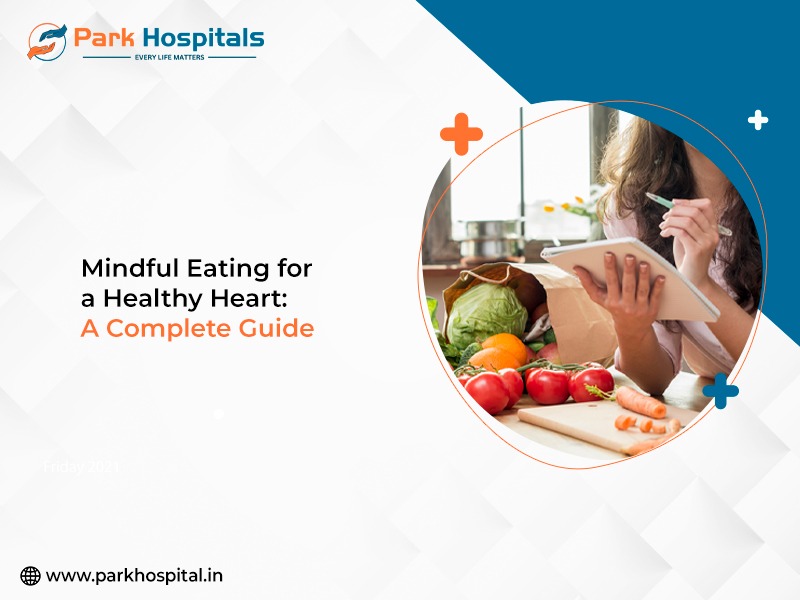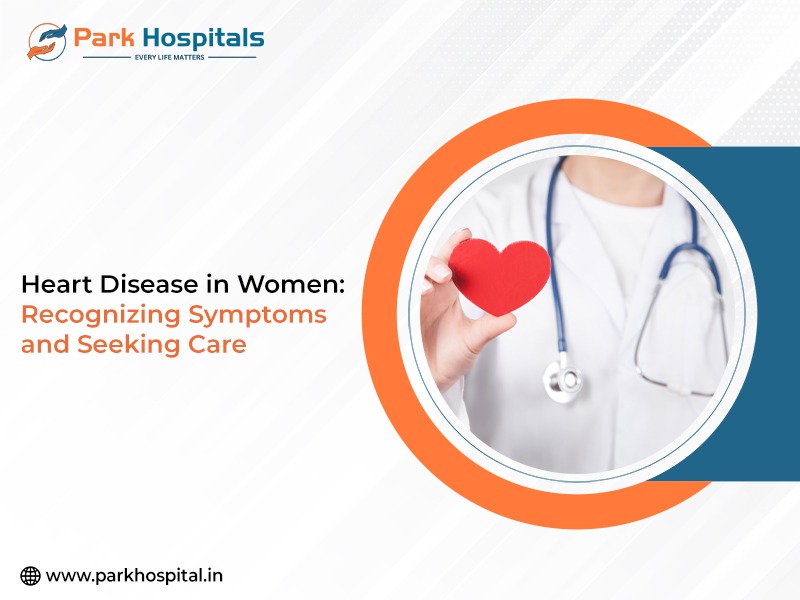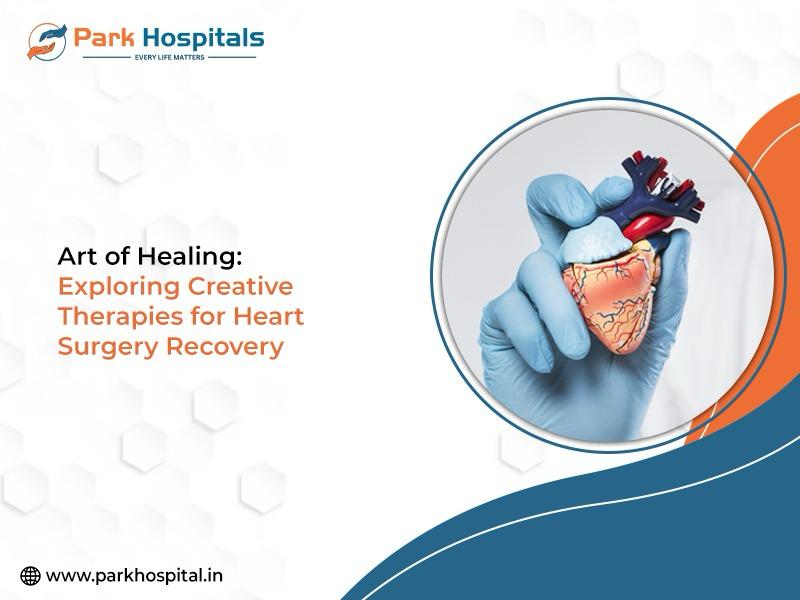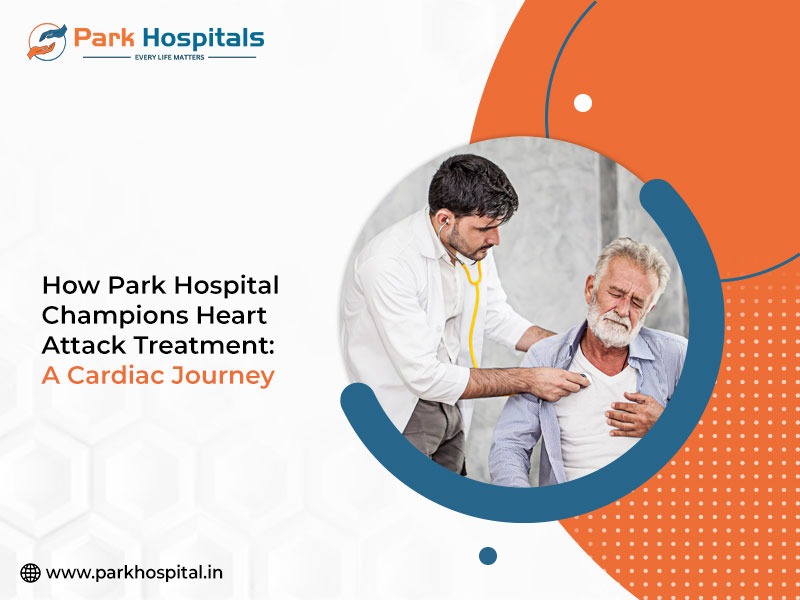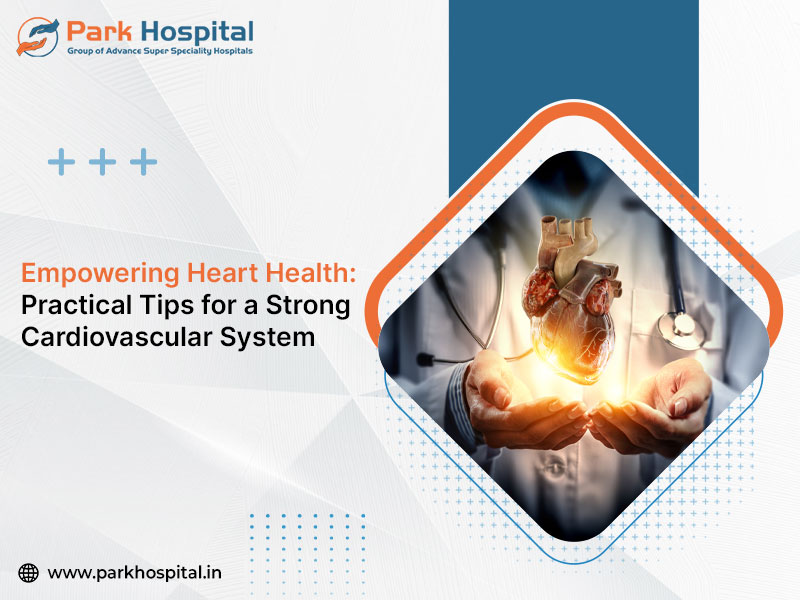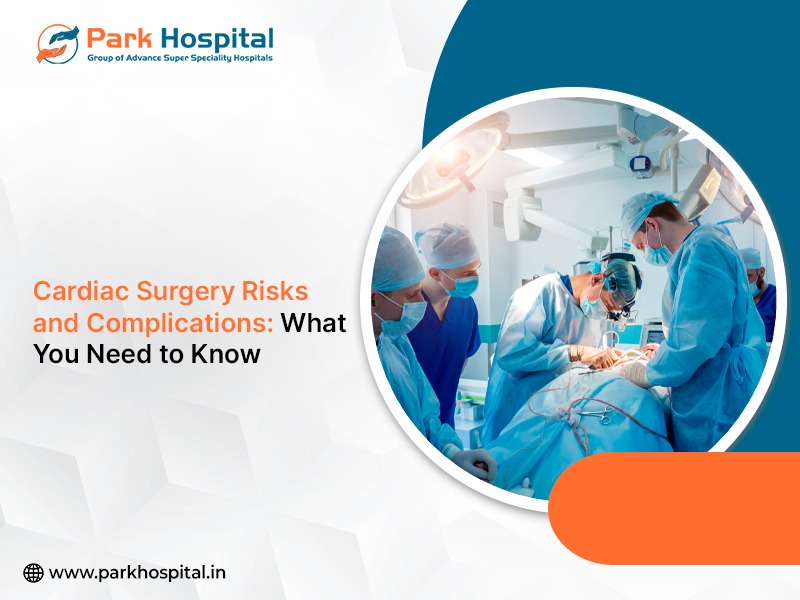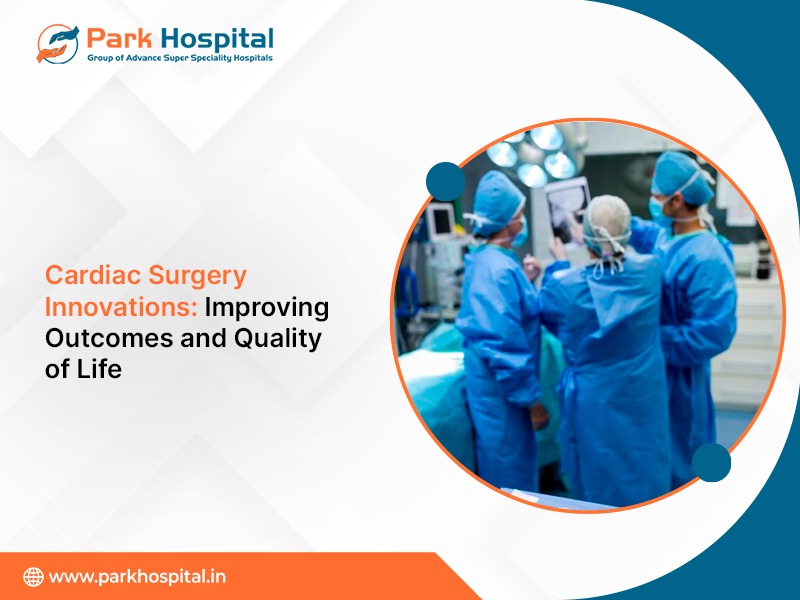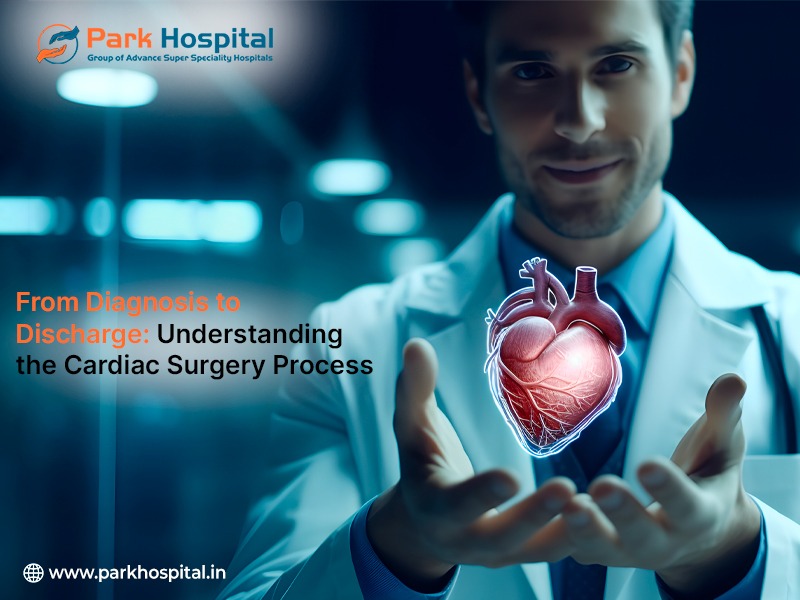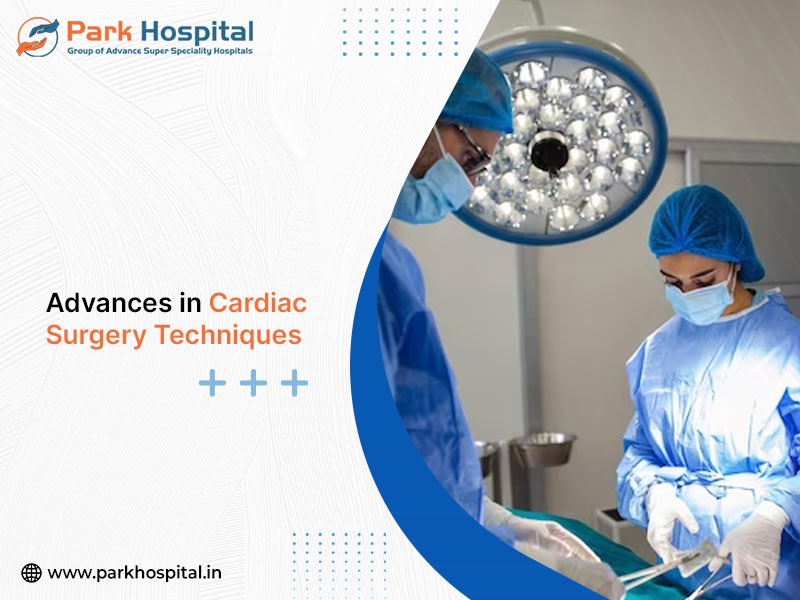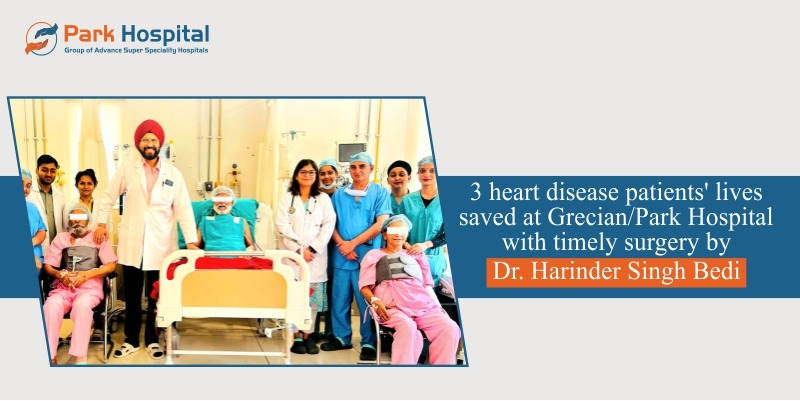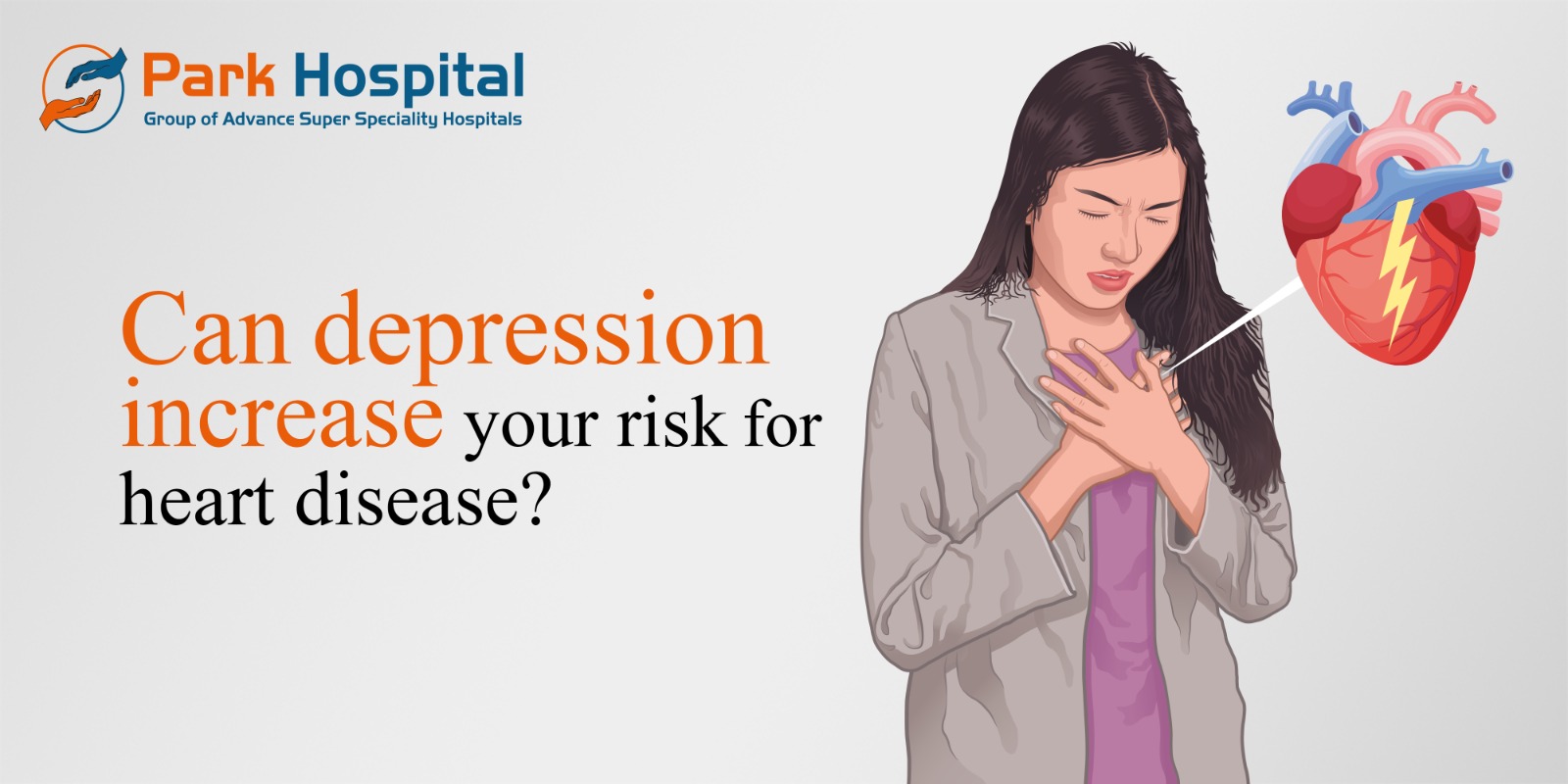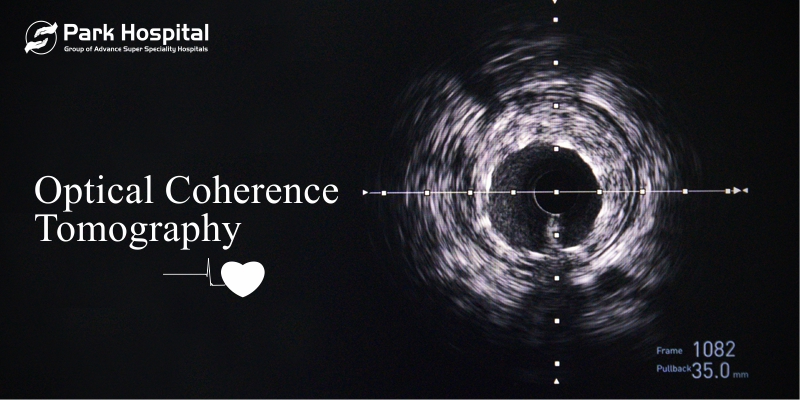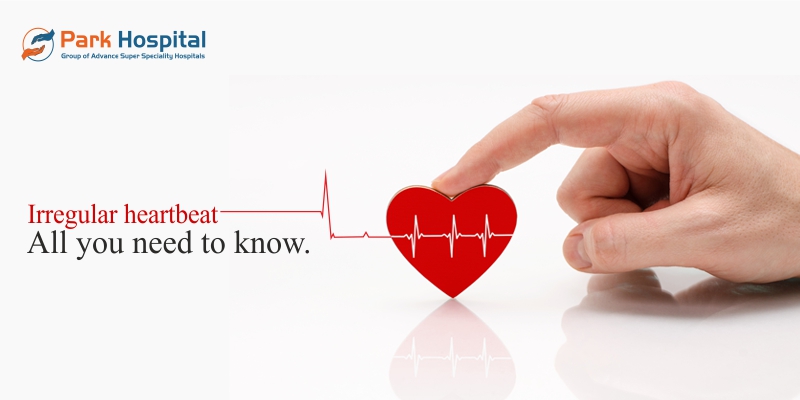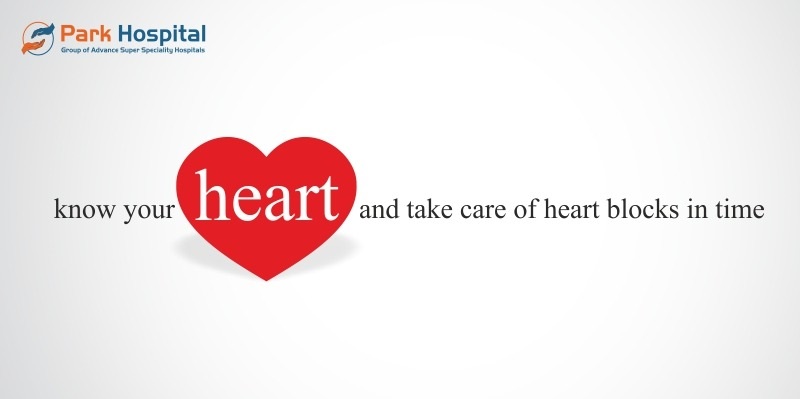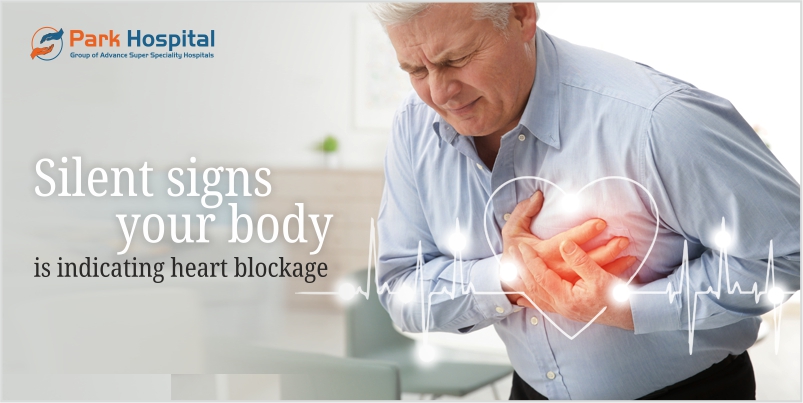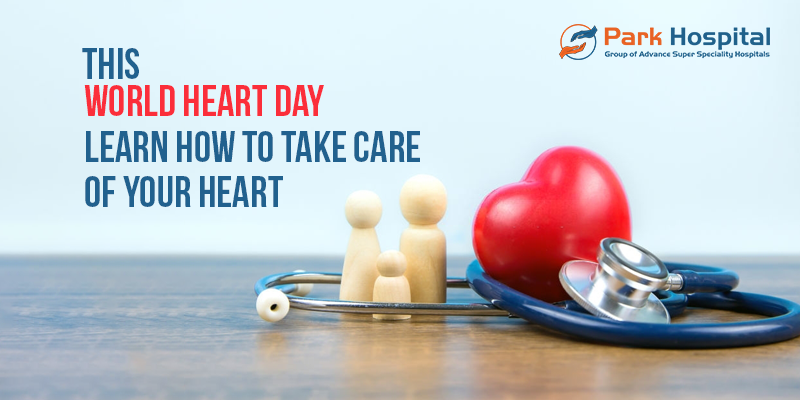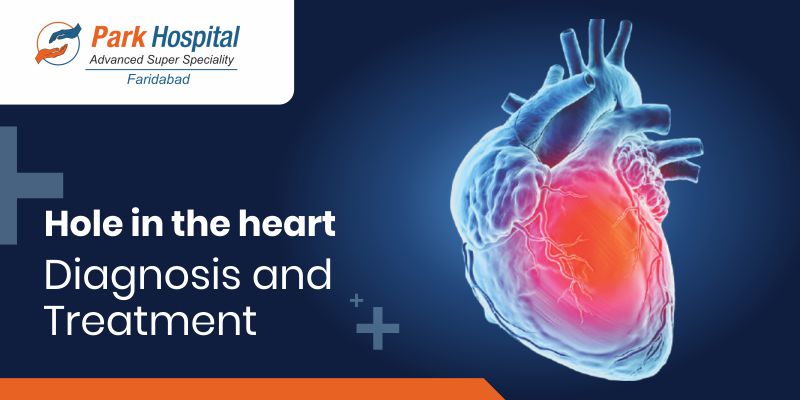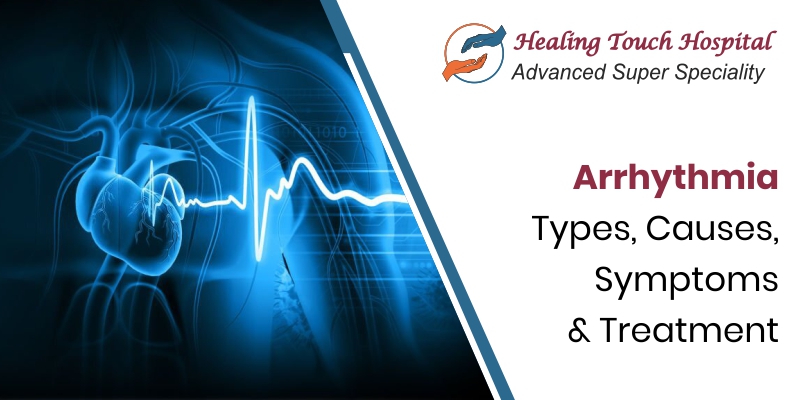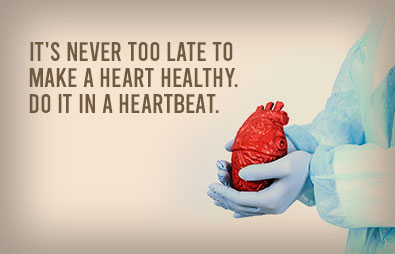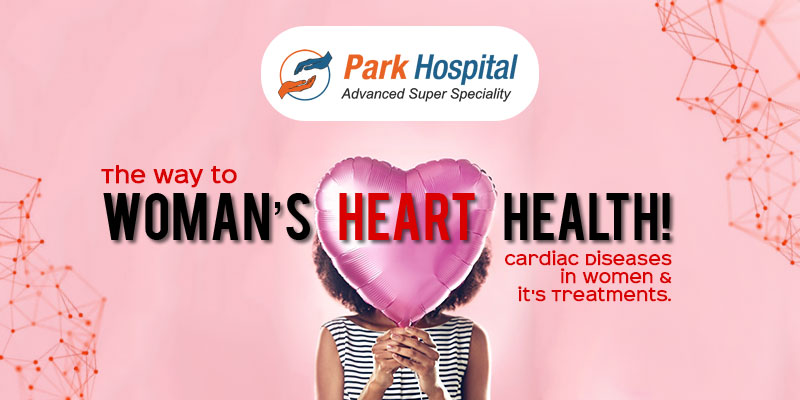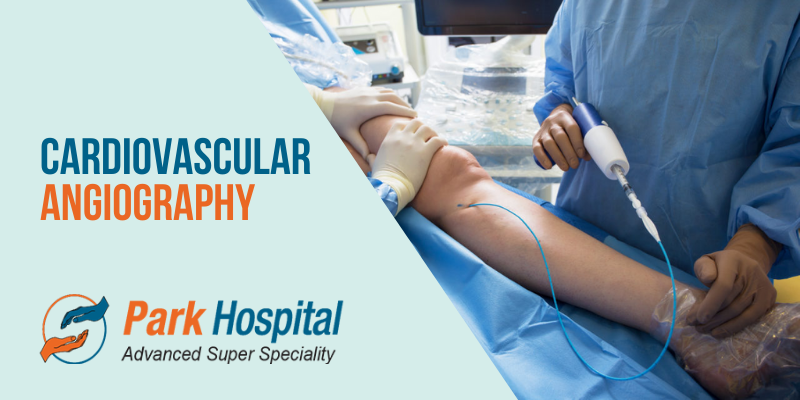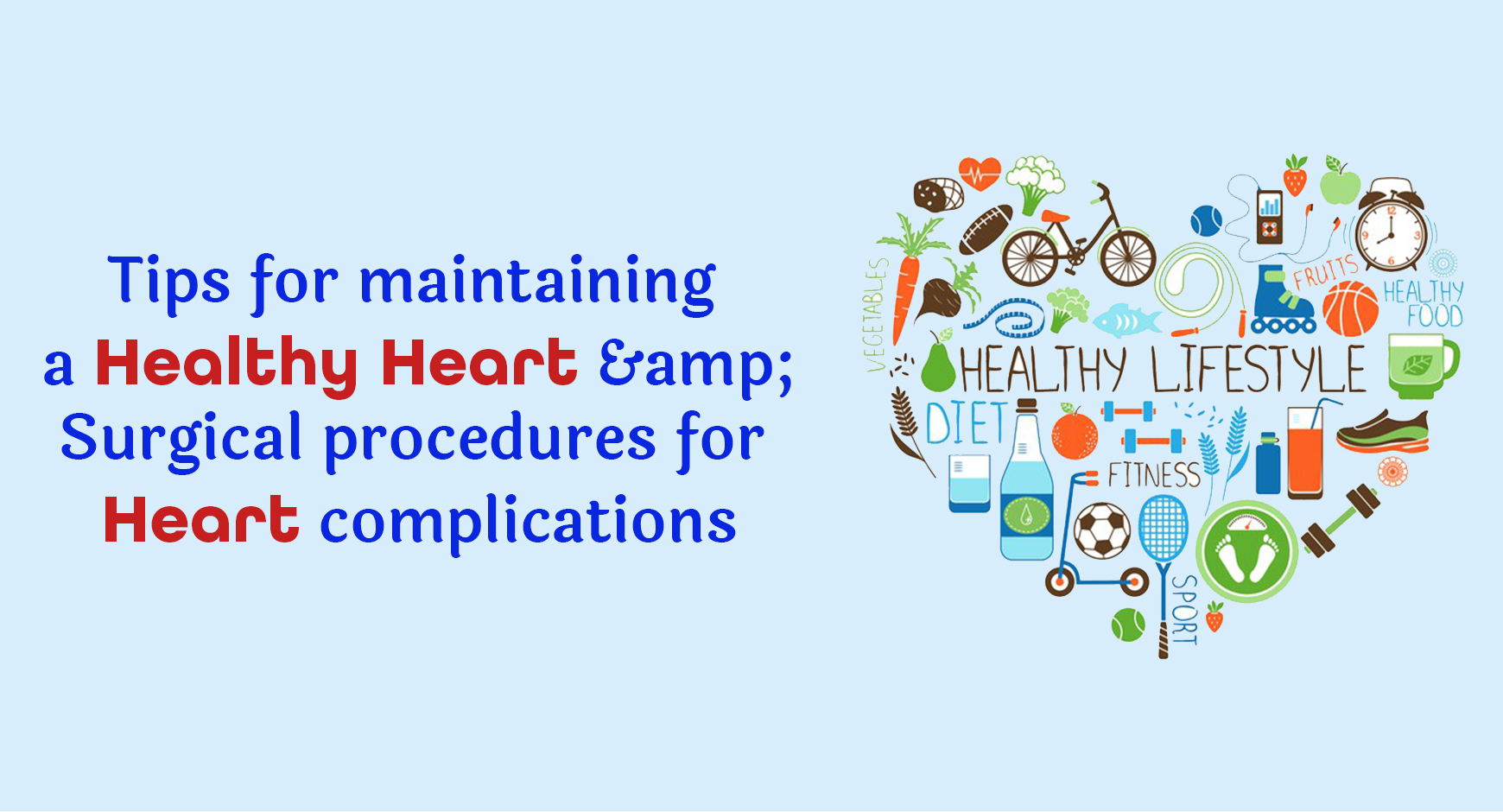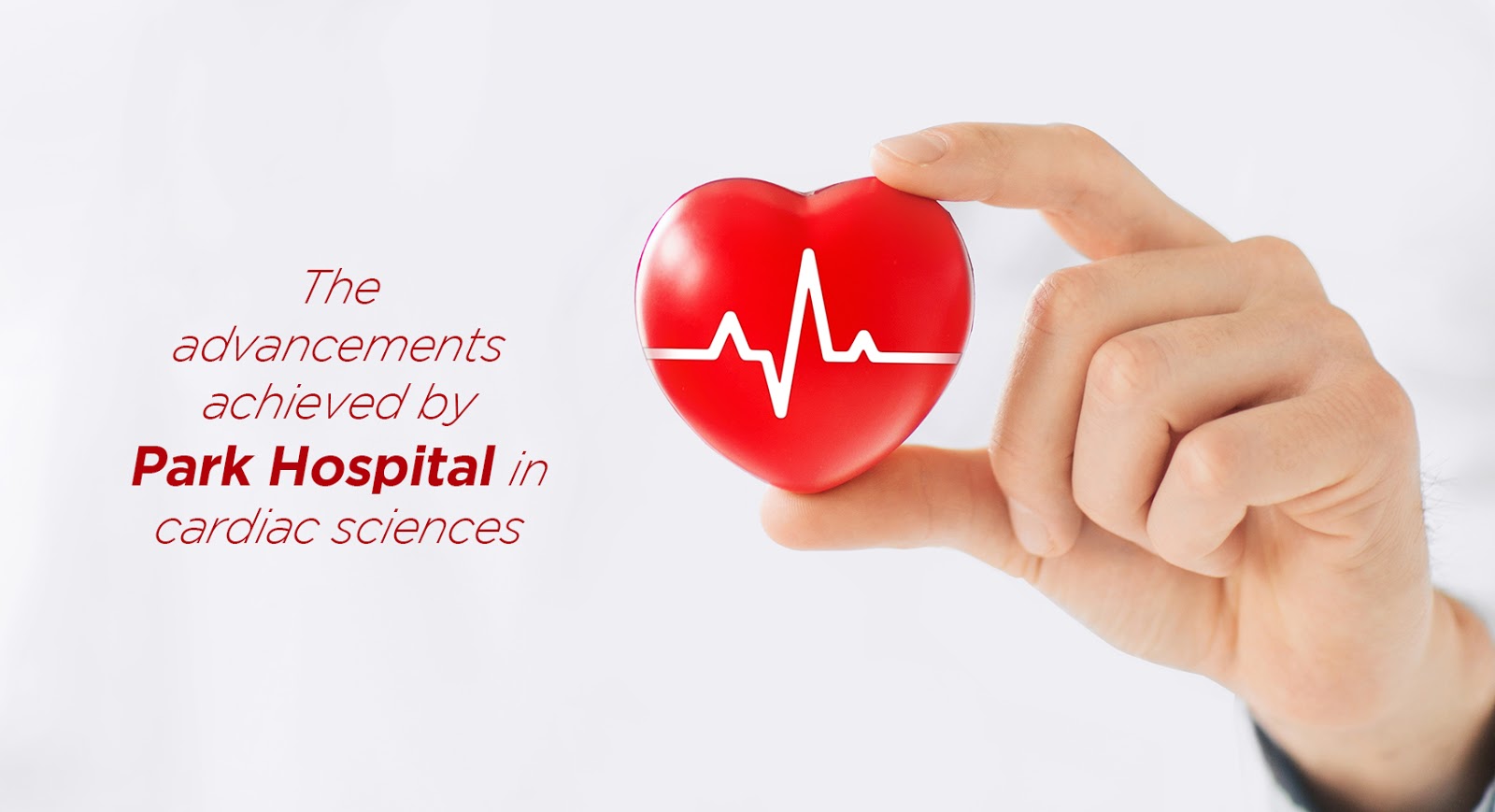A heart attack can strike suddenly, but more often than not, your body gives you signs long before the actual event. Understanding heart attack symptoms and recognizing them early can save your life or the life of someone you love. Yet, many people ignore these early symptoms, assuming they are minor or unrelated to heart health.
At Park Group of Hospitals, one of India’s leading names in multi-specialty healthcare, we focus not just on treating cardiac emergencies but also on educating our community to recognize and respond to these warning signs early. Our expert cardiologists and state-of-the-art cardiac care units are equipped to handle critical heart conditions with precision and compassion.
Understanding Heart Attacks: What Happens & Why?
When blood flow to a part of the heart muscle is interrupted by a clot in a coronary artery, a heart attack (also called myocardial infarction) can happen. Without oxygen-rich blood, that part of the heart can be damaged or die.
It’s a life-threatening event that requires immediate medical attention, and yet many people don’t realize they’re having a heart attack until it’s too late. That's why it is so important to recognize the symptoms of a heart attack and act quickly.
Click here: Best heart hospital in Delhi
10 Early Symptoms of Heart Attack You Should Know
Chest Pain or Discomfort
This is the most common symptom, often described as pressure, fullness, squeezing, or pain in the center or left side of the chest. It may last for a few minutes or more than that or may come and go.
Not all chest pain means a heart attack, but it’s better to be cautious and consult a doctor, especially if you have risk factors like high blood pressure, high cholesterol, or a family history of heart disease.
Shortness of Breath
You may experience difficulty breathing with or without chest discomfort. This could feel like you have just run a mile even while resting or doing light activity. It is one of the overlooked early symptoms of heart attack, especially among women.
Pain in the Neck, Jaw, Back, or Stomach
Pain can radiate to areas beyond the chest. Many people experience pain or discomfort in one or both arms, the back, neck, jaw, or upper stomach. These heart attack warning signs can be especially confusing and are often mistaken for muscle pain or indigestion.
Nausea, Light-headedness, or Cold Sweats
If you break into a cold sweat or feel faint, this can be an indication that your heart is under considerable stress. Nausea and even vomiting are more common heart attack signs in women, and they can easily be misinterpreted as food poisoning or flu.
Unusual Fatigue
Feeling unusually tired, even after a full night’s sleep, can be a subtle heart attack symptom. This is particularly significant in women and should not be ignored if it is persistent or sudden.
Heart Palpitations or Irregular Heartbeat
Feeling like your heart is racing, pounding, or skipping beats can be a sign of an underlying cardiac issue. While not always a sign of an impending heart attack, palpitations combined with other symptoms like chest pain or dizziness can indicate a problem.
Swelling in the Legs, Feet, or Ankles
Fluid build-up in the lower limbs may suggest that your heart is not pumping efficiently, which can be a sign of heart failure or a precursor to a heart attack. Always pay attention to swelling that is persistent or worsening.
Dizziness or Sudden Weakness
Sudden dizziness or feeling like you might faint can be your body’s way of saying it isn’t getting enough oxygen-rich blood. This should never be brushed off, especially if accompanied by chest discomfort or nausea.
Indigestion or Heartburn
Many people mistake the pain of a heart attack for indigestion or acid reflux. If you feel a burning sensation in your chest that doesn’t subside with antacids, especially with other symptoms like breathlessness or jaw pain, seek medical help.
Anxiety or a Sense of Doom
Many heart attack survivors report feeling a sudden, intense anxiety or an inexplicable sense of dread. While this can be psychological, it’s also a real physiological response to your heart not getting enough oxygen.
Heart Attack Signs in Women: Different and Often Misunderstood
Women often experience subtler symptoms compared to men. While chest pain remains a common symptom, heart attack signs in women may also include:
Shortness of breath without chest pain
Extreme fatigue
Nausea or vomiting
Pain in the back or jaw
Dizziness or fainting
Because these signs are often mistaken for less severe issues, women are more likely to delay seeking help sometimes with fatal consequences.
At Park Group of Hospitals, our cardiologists are trained to recognize and address these atypical symptoms in both men and women, ensuring timely diagnosis and treatment.
Who is at Risk?
Understanding the risk factors is essential to better manage heart health. The following individuals are more susceptible to heart attacks:
Hypertensive individuals or those with high cholesterol levels
Smokers
Diabetics
Individuals with a sedentary lifestyle
Family history of heart disease
Anyone experiencing chronic stress
Males >45 years and Females >55 years
If you fall into one or more of these categories, regular cardiac check-up can go a long way in preventing future complications.
When to See a Doctor Immediately
If you or someone else is experiencing:
Persistent chest pain or discomfort
Shortness of breath
Sudden weakness or dizziness
Cold sweats, nausea, or light-headedness
Don’t attempt to drive yourself or delay care. The sooner you seek medical attention, the less damage you will do to your heart muscle and the better chance you will have to recover fully.
In case of experiencing any of the above symptoms, you can call Park Hospital’s 24x7 helpline 99166-99166 for immediate help.
Cardiac Care at Park Group of Hospitals
At Park Group of Hospitals, we offer:
24x7 Emergency Cardiac Services
Advanced Diagnostics: ECG, 2D Echo, TMT, Holter Monitoring
Cath Lab Facilities for angiography and angioplasty
Cardiac Rehabilitation Programs for recovery and lifestyle management
Expert Cardiologists and Cardio-Thoracic Surgeons
Our patient-centric approach ensures that every individual receives personalized cardiac care tailored to their specific health profile.
Strategies to Promote Heart Health and Prevent a Heart Attack
Prevention is always better than cure. Here are some expert-recommended strategies to maintain heart health and reduce your risk of a heart attack:
Eat a Heart-Healthy Diet: Eating whole grains, fresh fruits and vegetables, lean proteins, and healthy fats while avoiding trans-fats and excess sugar or salt.
Get Exercise: You should get about 30 minutes of moderate exercise daily.
Stop Smoking: Smoking plays a major role in causing heart disease.
Limit Alcohol Consumption: Consumption of alcohol in excess, can raise blood pressure and lead to heart failure.
Control Stress: Chronic stress is a known risk factor for heart disease. Mindfulness, yoga, and other relaxation strategies can help control stress.
Monitor Your Health: Regular check-up, especially after the age of 40, can help catch issues early.
Control Other Conditions: Manage diabetes, high blood pressure, and high cholesterol with medications and lifestyle changes.
Conclusion-Listen to Your Heart Carefully
Your body often whispers before it screams. The early symptoms of heart attack are your body’s way of signalling that something is not right. Do not ignore them.
Whether it’s a subtle jaw ache or unusual fatigue, every symptom matters.
At Park Group of Hospitals, we urge you to act fast, stay informed, and prioritize your cardiac care. Remember, your heart works tirelessly for you, make sure you return the favour with timely attention and care.
If you or someone you know is having any of these symptoms, do not delay in visiting the closest Park Group of Hospitals or reach out to our Cardiac Science Department for a full heart health check-up today. An early diagnosis can be the deciding factor between life and death.
Stay aware. Stay heart-smart.
Frequently Asked Questions (FAQs)
What are the common heart attack symptoms?
The most common heart attack symptoms include chest pain or discomfort, shortness of breath, nausea, light-headedness, cold sweats, and pain radiating to the arm, jaw, back, or stomach. These signs can come on suddenly or gradually build over time.
What are the early symptoms of heart attack that people often ignore?
Some frequently ignored early heart attack symptoms are unusual fatigue, mild chest discomfort, heartburn, shortness of breath with light activity, and sleep disturbances. These are especially common in women and older adults.
Are heart attack symptoms different?
Yes, while chest pain is the most recognized heart attack sign in women, other symptoms can often be more subtle and easily overlooked. Women tend to have shortness of breath, fatigue, nausea, and jaw or back pain, and dizziness, and all of these atypical heart attack signs can provoke a delay in diagnosis and treatment post heart attack.
How do I know if it is indigestion or a heart attack?
Indigestion usually involves burning sensation in the chest after eating and can be relieved with antacids. Experiencing tightness in the chest, trouble breathing, and pain radiating toward the arm, neck, or jaw are all considered a heart attack warning sign. Always seek medical attention for any doubt.
What should I do if I notice signs of heart attack?
Call emergency services right away. Don’t wait to see if symptoms go away or try to drive yourself to the hospital. Timely medical attention is critical. Visit a hospital with specialized cardiac care, like Park Group of Hospitals, for fast and expert intervention.
Can a person have a heart attack without chest pain?
Yes. This is called a “silent heart attack.” It is more common in people with diabetes and older adults. The symptoms may include fatigue, shortness of breath, and light-headedness, which are easy to overlook.
How can I reduce my risk and maintain good health?
Maintain your heart health by:
Eating a balanced, low-fat diet
Exercising regularly
Avoiding tobacco and excess alcohol
Managing stress and chronic conditions like diabetes or high blood pressure
Getting regular cardiac check-up at trusted institutions like Park Group of Hospitals
Are heart palpitations a sign of heart attack?
Not always, but if the palpitations are accompanied by chest pain, shortness of breath, dizziness, or fainting, they could indicate a serious problem. The best way to get it evaluated is to consult a Cardiologist.

